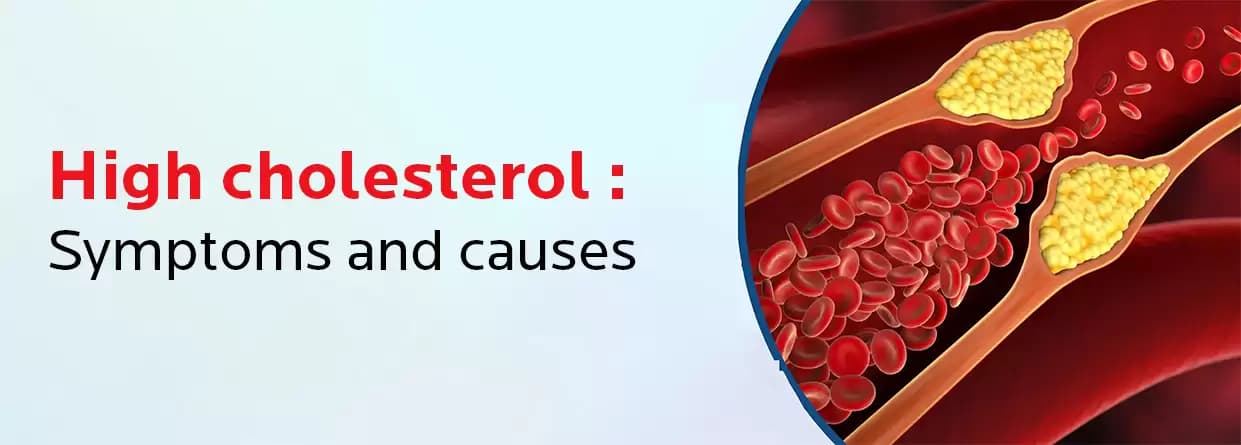
Increased levels of low-density lipoprotein (LDL) cholesterol in the blood signify high cholesterol. Known as "bad" cholesterol.
High cholesterol nowadays has become one of the most common conditions affecting every age group. The problem is rising because of the lifestyle we lead and hectic work schedules. Cholesterol is a condition that is widespread worldwide. Both developed and developing nations have alarming increases in high cholesterol determined by increased levels of LDL (bad) cholesterol and decreased levels of HDL (good) cholesterol. Its prevalence is influenced by a number of factors, including dietary practices, sedentary lifestyles, and genetic predispositions.
The World Health Organization (WHO) states that the primary cause of death globally is cardiovascular diseases, which are usually associated with increased levels of cholesterol. To address this prevalent health issue, medical interventions, lifestyle changes, and public health campaigns are involved to lower the global burden of cardiovascular diseases and reduce the risks linked to high cholesterol.
If you suspect you have cholesterol, then you must look out for the symptoms. However, cholesterol can occur without any existing symptoms, and chances you might not even know until it is diagnosed. The best way to diagnose the condition is to book your appointment with a cardiologist in Kolkata at the BM Birla Heart Research Center in Kolkata. They have highly qualified professionals who will ensure proper diagnosis and offer treatment that is suitable for you.
If you want to comprehend the causes, and what can you do once diagnosed with that condition or its reversal, then make sure to go through this write-up. In this blog, we will provide all the information related to high cholesterol. Please note that this blog is for informative purposes and we do not interfere with the cardiologist's consultation.
Increased levels of low-density lipoprotein (LDL) cholesterol in the blood signify high cholesterol. Known as "bad" cholesterol, low-density lipoprotein (LDL) cholesterol accumulates in the arteries and causes plaque to form, enhancing the risk of heart disease and stroke. At the same time, low levels of HDL cholesterol, or "good" cholesterol, enhance the probability of cardiovascular disease. Dietary choices, genetics, and lifestyle factors lead to affecting cholesterol levels. Maintaining a heart-healthy lifestyle, involving a balanced diet, frequent exercise, and, if required, prescription medication instructed by medical professionals plays an important role in the management of cholesterol.
High cholesterol usually doesn't cause any noticeable symptoms, it's a silent health risk. Patients usually discover they have high cholesterol through regular blood testing. On the other hand, consistently high cholesterol exasperates cardiovascular problems by causing atherosclerosis, or the hardening and narrowing of the arteries. When complications like chest pain, heart attacks, or strokes occur, symptoms can occur. To minimize the risk of complications, it's vital to follow and maintain a healthy lifestyle with regular check-ups, exercise, and a balanced diet to assess cholesterol levels. For an accurate diagnosis and course of treatment, getting in touch with a healthcare professional is essential.
Various high cholesterol are there that involve dietary, lifestyle, and genetic factors. Here are some of the main causes:
High cholesterol diagnosis involves a thorough assessment consisting of the following steps:
Managing high cholesterol needs not just a change in lifestyle but also, when required, medical interventions. The following are some ways involved in high cholesterol treatment:
Here are some of the prevention tips to avert the risk of developing high cholesterol:
To sum up, cholesterol management is essential to prevent cardiovascular diseases and other health concerns. A healthy lifestyle that inculcates regular exercise and a balanced diet is important. Initial diagnosis through cholesterol screening allows successful interventions, including, when needed, medication and lifestyle changes. Fighting the worldwide health issue of high cholesterol needs educating people about risk factors and endorsing preventative health measures.
The risk of developing heart diseases like heart attack, stroke, etc., and other health conditions increases if the level of cholesterol is high.
Chicken is not very high in cholesterol but eating regularly can pose serious health risks.
Written and Verified by:

Dr. Shuvo Dutta is a Senior Consultant in Cardiology Dep. at BM Birla Heart Hospital, Kolkata, with over 34 years of experience. He specializes in radial and femoral angioplasty, complex cardiac interventions, and was the first in India to perform carotid artery stenting to prevent brain stroke.
Similar Cardiology Blogs
Book Your Appointment TODAY
© 2024 BMB Kolkata. All Rights Reserved.